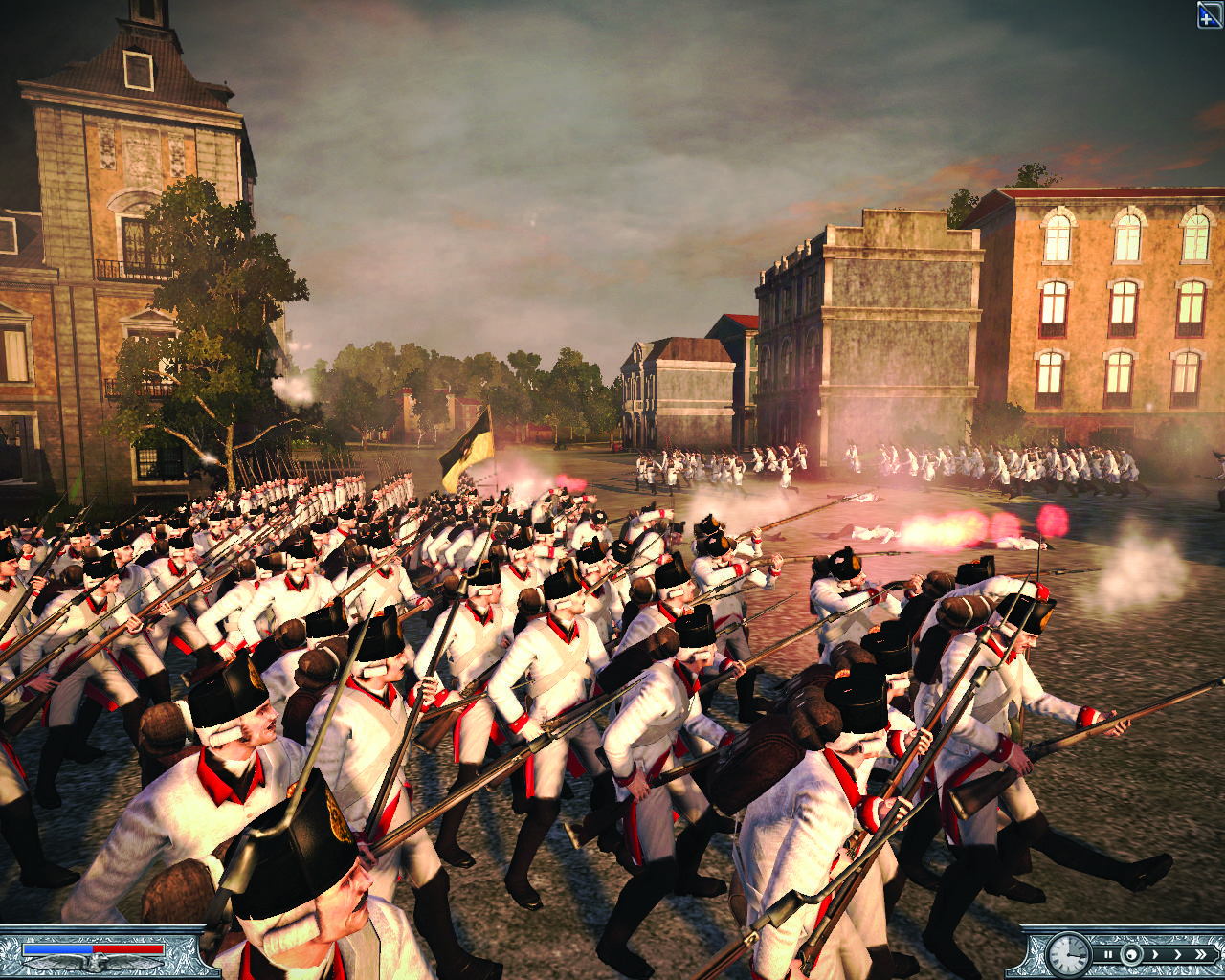Why you can trust GamesRadar+
In our second Grand Campaign experience, playing as Blighty (it’s possible to play as any of the four Coalition majors) we thought we’d start by kicking the Little Corporal where it would hurt most. A 20-unit expeditionary force was loaded onto transports and floated across the Channel. After a short stroll through Normandy, Paris was reached and fell with a single click of the auto-resolve button. We scrawled a big red ‘WTF!’ into our notes. A few months later, a combination of rebels and Grande Armee troops took back the city, but not before we’d looted the place mercilessly and turned every significant building into a pile of ash.
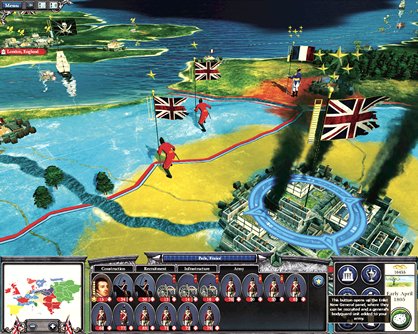
Part two of our plan to test Boney’s temper was to disband the entire British army along with Nelson’s navy and sit back and wait for the inevitable(?) Napocalypse. After a year in which the French did nothing but a spot of port and trade-node raiding, we’d almost given up when an invasion force sailed up the Forth. Huzzah! But no. The attackers turned out to be Battavians. A tinpot one-state nation, locked in a war with its massive Prussian neighbour, had decided it would be a good idea to mount a naval invasion of Scotland. We scrawled an even bigger ‘WTF!’ into our notes.
Nothing we’ve seen so far gives use much confidence in the silicon brain pulling NTW’s grand-strategic levers. It reacts to city capture well enough, uses spies aggressively, and knows how to raid, but it seems unable to formulate or execute a coherent grand strategy. Its diplomatic performance is also patchy. A worst-case example: we once forged an alliance with the Turks only to see it dissolved for no obvious reason two turns later. No problem. The moody sultans obviously got cold feet. Except they didn’t. Two turns later they were back offering us a substantial sum of money to form – you’ve guessed it – an alliance.
With the high-level AI so shambolic, it’s nice to be able to seek solace in Nap’s splendid battle layer. While you still see stuff that boggles the mind (idiotic generals, ludicrous cannons, bizarre fortress assaults...) the majority of scraps are thoroughly engaging. A few are downright sublime. Last night we had a run in with Wellesley near Hanover that made us proud to be French.
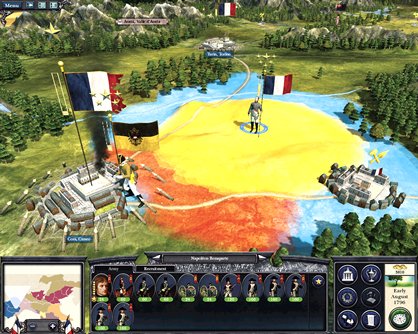
We were evenly matched numbers-wise, but the Brits had the quality, and half our army was arriving as reinforcements (rarely good). As it turned out, that split probably saved the day. Approaching from front and rear our men made a bloody beef sandwich of the redcoats. All credit to the foe though, they behaved admirably, forming an ad-hoc defensive triangle that spat musket balls at a fearful rate. At times the smoke was so thick you could cut it with a sabre.
For a while the battle might have gone either way. We rushed our general hither and thither to steady the nerves of wavering formations (generals have new manually-triggered ‘rally and ‘inspire’ powers). We targeted weak enemy regiments with darting cavalry charges. It was heart-pounding, atmospheric and totally believable. The second the ‘Close Victory!’ message appeared, we dashed off to the replay area to watch our triumph all over again.
Some of the best combat comes via the historical battle mode. Making up for the lack of single scenarios in Empire, NTW boasts a ten-tussle sequence ending logically with Waterloo. Resist the Mameluke surge at Embabeh, rush to Saint-Cyr’s aid at Dresden, negotiate the treacherous marshes at Arcole... what the engagements lack in historicism they more than make up for in spectacle, tension, and drama. And they do lack historicism. In the coming weeks expect a rash of official forum posts with titles like ‘Snow at Austerlitz????’ and ‘Only 4,000 at Borodino!!!!’ Like many a Nap wargame, NTW doesn’t do a great job of communicating the scale of the period’s bloodbaths. Most of the time the massed ranks you see on screen represent less than 10% of historical headcounts.
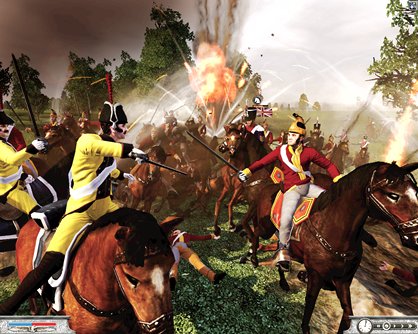
More importantly, the game also does a poor job of communicating why Napoleon and his marshals enjoyed such astonishing success for so long. The Grande Armee was grande, sure, but it was also flexible, ready to abandon traditional linear tactics when the need arose. Facing Napoleon should mean facing his party-pieces – column and echelon attacks, ‘Egyptian squares’... At the very least CA should have given him huge deployment advantages.
The only time you’re likely to see Boney’s forces fighting in an authentic fashion is in multiplayer. One of the few areas where NTW is significantly superior to its predecessor, the choices available are now dizzying. There are historical engagements, naturally (how does an eight-handed Battle of Waterloo sound?) and pick-your-own-army skirmishes, but it’s the multiplayer campaigns and ‘drop in’ battles that really catch the eye. Frustratingly, we haven’t had a chance to test either properly but assuming there are no technical problems, both have the potential to banish series fatigue in the blink of an eye. Tick the ‘drop in’ box at any point during a solo campaign and prior to every evenly balanced battle, the game will zip off in search of a live opponent. No more steamrollering the AI. No more cheap tricks with cavalry. Now when you look across the valley and see enemy infantry moving in three directions at once you’ll have good reason to gulp.
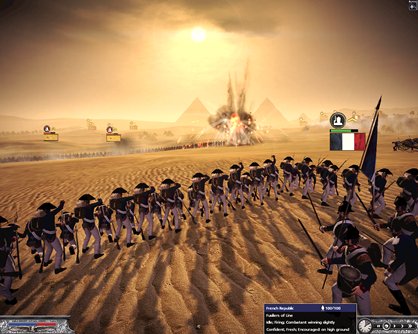
We’re not going to insult your intelligence by claiming improved multiplayer campaigns excuse the dodgy strategic AI. They don’t. If you’re going to make a game about one of the greatest military geniuses of all time, it’s vital you give him some worthy sparring partners. By delivering dunderheaded opponents and a half-hearted supply system Creative Assembly haven’t done themselves or Boney justice.
More info
| Genre | Strategy |
| Description | It's a very good strategy game, though slight historical inaccuracies and somewhat stupid AI are disappointing. |
| Franchise name | Total War |
| UK franchise name | Total War |
| Platform | "PC" |
| US censor rating | "Teen" |
| UK censor rating | "12+" |
| Release date | 1 January 1970 (US), 1 January 1970 (UK) |
